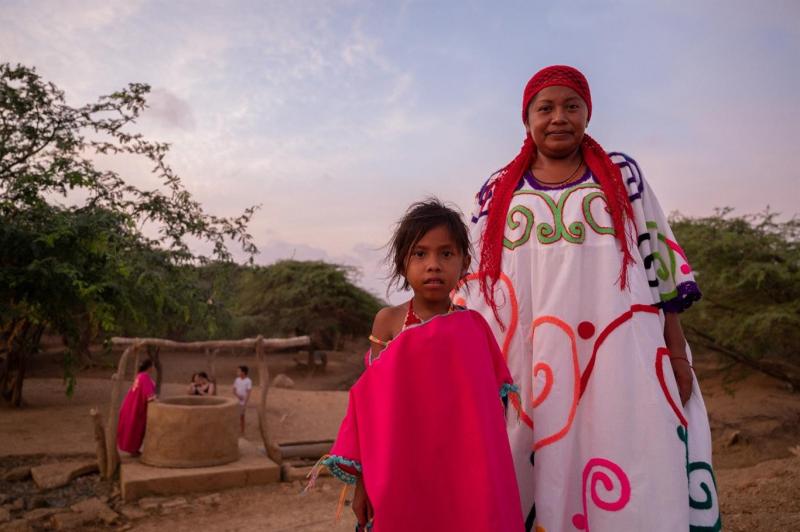
Colombia responds to COVID-19 with an intercultural health model
November 6, 2020
Region of the Americas
Colombia
Under current COVID-19 guidance, all communities across Colombia are obliged to cremate people when they die, but an exception is made for the indigenous people of Alta Guajira. The Wayúu people's beliefs and cultural practices around death are so important, that the Government now allows them to bury their dead underground or in a vault.
The decision was made before COVID-19 reached the rural communities of Alta Guajira, who live in a vast desert of 8200 square kilometres in 22 000 scattered hamlets.
Following Government instructions to protect themselves against COVID-19 is really hard for people living in Alta Guajira.
Moreover, with temperatures at over 40 degrees Celsius, wearing masks, which are already scarce, is uncomfortable. There is not enough fresh water for people to wash their hands regularly and it takes one hour on foot to reach water sources.
The health conditions which have always affected them – such as malnutrition, acute diarrhoeal disease, tuberculosis, acute respiratory diseases and maternal and neonatal deaths – continue.
COVID-19 in Colombia
The first case of COVID-19 arrived in Colombia on 6 March 2020. However, by February, the country had already started to strengthen its surveillance system and national network of laboratories. It also doubled its capacity to provide health services, getting more equipment into hospitals and enough qualified health personnel to meet the population’s needs. Without the participation of the general public in terms of hygiene and self-protection, it would be impossible to stop the spread of COVID-19, leading Colombia to quickly call on its citizens to take action.
Building stronger health systems with the people
It was clear that the best way to reach the Wayúu people was through primary health care services, located close to home, that connect and appeal to their own culture. The department and the local health authorities agreed to promote primary health care adapted to the characteristics of the territory and the current situation, and with the effective participation of the community. Along with better infrastructure, equipment and medicines, there is a call for trained health personnel with deep personal knowledge of the local Wayuunaiki language and cultural practices.
Implementing an intercultural health model
PAHO/WHO has supported local authorities to implement an “intercultural” health model with the Wayúu people. This initiative is supported by the UHC Partnership, which assists 115 countries in accelerating progress to achieve Universal Health Coverage (UHC) through funding provided by the European Union (EU), the Grand Duchy of Luxembourg, Irish Aid, the Government of Japan, the French Ministry for Europe and Foreign Affairs, the UK Department for International Development and Belgium.
“With this project we want to strengthen the capacities of the basic health teams by incorporating 16 community health workers of the Wayúu indigenous people, who in their communities, must carry out community epidemiological surveillance, promote healthy lifestyles, monitor chronic diseases, assist pregnant women and children under 5 years of age and support risk management to prevent communicable diseases,” said Gina Tambini, PAHO/WHO Representative in Colombia.
Leaving no one behind
Colombia is demonstrating how national commitment and international cooperation for UHC reaches people in the most remote and vulnerable communities. The Wayúu people are physically and geographically isolated from the rest of Colombia as the pandemic spreads through the country, but they are not left behind in efforts to deliver health for all.
Visit the UHC Partnership website to read the full story
Read more on WHO's COVID-19 response in countries